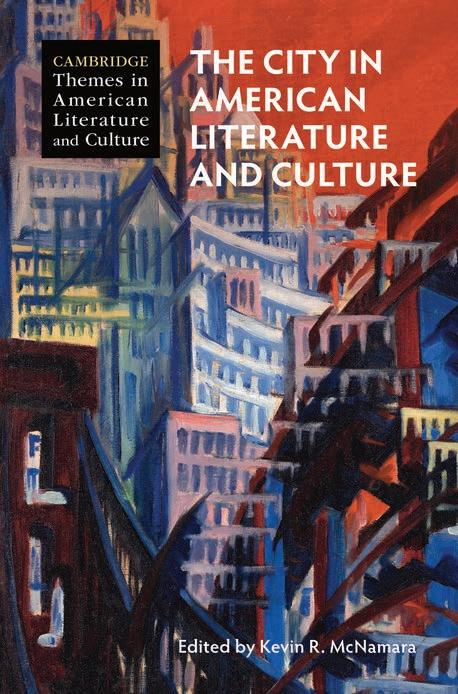
1 minute read
Types and Definitions of Irony
The City in American Literature and Culture
Kevin R. McNamara
Advertisement
University of Houston-Clear Lake
Description
The city’s ‘Americanness’ has been disputed throughout US history. Pronounced dead in the late twentieth century, cities have enjoyed a renaissance in the twenty-first. Engaging the history of urban promise and struggle as represented in literature, film, and visual arts, and drawing on work in the social sciences, The City in American Literature and Culture examines the large and local forces that shape urban space and city life and the street-level activity that remakes culture and identities as it contests injustice and separation. The first two sections examine a range of city spaces and lives; the final section brings the city into conversation with Marxist geography, critical race studies, trauma theory, slow/systemic violence, security theory, posthumanism, and critical regionalism, with a coda on city literature and democracy.
Key Features
• Chapters engage the broader discourse on each topic and its history • Offers a comprehensive, up to date, and accessible approach, clarifying discourse for non-specialist readers
Contents
Introduction; 1. Antebellum urban publics; 2. Intersections: streets and other democratic spaces; 3. The literature of neighborhood; 4. Writing the ghetto, inventing the slum; 5. Urban borders, open wounds; 6. Gentrification; 7. House rules: the New Yorker and the making of the white suburban liberal woman; 8. Transnational American cities Camilo Mejía’s ar Ramadi, Iraq, and Jason Hall’s Topeka, Kansas; 9. The poetics of rims: New Orleans; 10. American vertigo: the metropolis and the new biopolitical order; 11. Labor’s city; 12. White immigrant trajectories in US urban literature: the Italian American case; 13. Crime and violence, or hard-boiled chronicles of mean streets and their hidden truths; 14. Disaster, apocalypse, and after; 15. Bohemia; 16. The spatial turn and critical race studies; 17. From trauma theory to systemic violence: narratives of post-katrina New Orleans; 18. Security theory; 19. Posthuman cities; 20. Critical regionalism: why Hillbilly Elegy and its critics matter to writing about cities; Coda: city and polis.
Additional Information
Level: Graduate students, academic researchers Series: Cambridge Themes in American Literature and Culture
August 2021 229 x 152 mm c.350pp 978-1-108-84196-2 Hardback £84.99 / US$110.00









